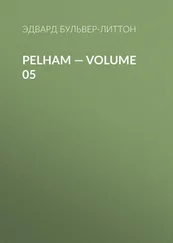Эдвард Бульвер-Литтон - Pelham — Complete
Здесь есть возможность читать онлайн «Эдвард Бульвер-Литтон - Pelham — Complete» — ознакомительный отрывок электронной книги совершенно бесплатно, а после прочтения отрывка купить полную версию. В некоторых случаях можно слушать аудио, скачать через торрент в формате fb2 и присутствует краткое содержание. Жанр: Альтернативная история, literature_19, Европейская старинная литература, foreign_antique, foreign_prose, Исторические приключения, на английском языке. Описание произведения, (предисловие) а так же отзывы посетителей доступны на портале библиотеки ЛибКат.
- Название:Pelham — Complete
- Автор:
- Жанр:
- Год:неизвестен
- ISBN:нет данных
- Рейтинг книги:3 / 5. Голосов: 1
-
Избранное:Добавить в избранное
- Отзывы:
-
Ваша оценка:
- 60
- 1
- 2
- 3
- 4
- 5
Pelham — Complete: краткое содержание, описание и аннотация
Предлагаем к чтению аннотацию, описание, краткое содержание или предисловие (зависит от того, что написал сам автор книги «Pelham — Complete»). Если вы не нашли необходимую информацию о книге — напишите в комментариях, мы постараемся отыскать её.
Pelham — Complete — читать онлайн ознакомительный отрывок
Ниже представлен текст книги, разбитый по страницам. Система сохранения места последней прочитанной страницы, позволяет с удобством читать онлайн бесплатно книгу «Pelham — Complete», без необходимости каждый раз заново искать на чём Вы остановились. Поставьте закладку, и сможете в любой момент перейти на страницу, на которой закончили чтение.
Интервал:
Закладка:
At first, I own that I was flattered by her choice, and though she was terribly exigeante of my petits soins, I managed to keep up her affection, and, what is still more wonderful, my own, for the better part of a month. What then cooled me was the following occurrence:
I was in her boudoir one evening, when her femme de chambre came to tell us that the duc was in the passage. Notwithstanding the innocence of our attachment, the duchesse was in a violent fright; a small door was at the left of the ottoman, on which we were sitting. “Oh, no, no, not there,” cried the lady; but I, who saw no other refuge, entered it forthwith, and before she could ferret me out, the duc was in the room.
In the meanwhile, I amused myself by examining the wonders of the new world into which I had so abruptly immerged: on a small table before me, was deposited a remarkably constructed night-cap; I examined it as a curiosity: on each side was placed une petite cotelette de veau cru, sewed on with green-coloured silk (I remember even the smallest minutiae), a beautiful golden wig (the duchesse never liked me to play with her hair) was on a block close by, and on another table was a set of teeth, d’une blancheur eblouissante. In this manufactory of a beauty I remained for a quarter of an hour; at the end of that time, the abigail (the duchesse had the grace to disappear) released me, and I flew down stairs like a spirit from purgatory.
From that moment the duchesse honoured me with her most deadly abhorrence. Equally silly and wicked, her schemes of revenge were as ludicrous in their execution as remorseless in their design: at one time I narrowly escaped poison in a cup of coffee—at another, she endeavoured to stab me to the heart with a paper cutter.
Notwithstanding my preservation from these attacks, this new Messalina had resolved on my destruction, and another means of attempting it still remained, which the reader will yet have the pleasure of learning.
Mr. Thornton had called upon me twice, and twice I had returned the visit, but neither of us had been at home to benefit by these reciprocities of politesse. His acquaintance with my mysterious hero of the gambling house and the Jardin des Plantes, and the keen interest I took, in spite of myself, in that unaccountable person, whom I was persuaded I had seen before in some very different scene, and under very different circumstances, made me desirous to increase a connoissance, which, from Vincent’s detail, I should otherwise have been anxious to avoid. I therefore resolved to make another attempt to find him at home; and my headache being somewhat better, I took my way to his apartments in the Faubourg St. Germain.
I love that quartier—if ever I went to Paris again I should reside there. It is quite a different world from the streets usually known to, and tenanted by the English—there, indeed, you are among the French, the fossilized remains of the old regime—the very houses have an air of desolate, yet venerable grandeur—you never pass by the white and modern mansion of a nouveau riche; all, even to the ruggedness of the pave, breathes a haughty disdain of innovation—you cross one of the numerous bridges, and you enter into another time—you are inhaling the atmosphere of a past century; no flaunting boutique, French in its trumpery, English in its prices, stares you in the face; no stiff coats and unnatural gaits are seen anglicising up the melancholy streets. Vast hotels, with their gloomy frontals, and magnificent contempt of comfort; shops, such as shops might have been in the aristocratic days of Louis Quatorze, ere British vulgarities made them insolent and dear; public edifices, still redolent of the superb charities of le grand monarque—carriages with their huge bodies and ample decorations; horses, with their Norman dimensions and undocked honours; men, on whose more high though not less courteous demeanour, the revolution seems to have wrought no democratic plebeianism—all strike on the mind with a vague and nameless impression of antiquity; a something solemn even in gaiety, and faded in pomp, appear to linger over all you behold; there are the Great French people unadulterated by change, unsullied with the commerce of the vagrant and various tribes that throng their mighty mart of enjoyments.
The strangers who fill the quartiers on this side the Seine pass not there; between them and the Faubourg there is a gulf; the very skies seem different—your own feelings, thoughts—nature itself—alter, when you have passed that Styx which divides the wanderers from the habitants; your spirits are not so much damped, as tinged, refined, ennobled by a certain inexpressible awe—you are girt with the stateliness of Eld, and you tread the gloomy streets with the dignity of a man, who is recalling the splendours of an ancient court where he once did homage.
I arrived at Thornton’s chambers in the Rue St. Dominique. “Monsieur, est-il chez lui?” said I to the ancient porteress, who was reading one of Crebillon’s novels.
“Oui, Monsieur, au quatrieme,” was the answer. I turned to the dark and unclean staircase, and, after incredible exertion and fatigue, arrived, at last, at the elevated abode of Mr. Thornton.
“Entrez,” cried a voice, in answer to my rap. I obeyed the signal, and found myself in a room of tolerable dimensions and multiplied utilities. A decayed silk curtain of a dingy blue, drawn across a recess, separated the chambre a coucher from the salon. It was at present only half drawn, and did not, therefore, conceal the mysteries of the den within; the bed was still unmade, and apparently of no very inviting cleanliness; a red handkerchief, that served as a nightcap, hung pendant from the foot of the bed; at a little distance from it, more towards the pillow, were a shawl, a parasol, and an old slipper. On a table, which stood between the two dull, filmy windows, were placed a cracked bowl, still reeking with the less of gin-punch, two bottles half full, a mouldy cheese, and a salad dish; on the ground beneath it lay two huge books, and a woman’s bonnet.
Thornton himself sat by a small consumptive fire, in an easy chair; another table, still spread with the appliances of breakfast, viz. a coffee-pot, a milk-jug, two cups, a broken loaf, and an empty dish, mingled with a pack of cards, one dice, and an open book de mauvais gout, stood immediately before him.
Every thing around bore some testimony of the spirit of low debauchery; and the man himself, with his flushed and sensual countenance, his unwashed hands, and the slovenly rakishness of his whole appearance, made no unfitting representation of the Genius Loci.
All that I have described, together with a flitting shadow of feminine appearance, escaping through another door, my quick eye discovered in the same instant that I made my salutation.
Thornton rose, with an air half careless and half abashed, and expressed, in more appropriate terms than his appearance warranted, his pleasurable surprise at seeing me at last. There was, however, a singularity in his conversation, which gave it an air both of shrewdness and vulgarity. This was, as may before have been noted, a profuse intermixture of proverbs, some stale, some new, some sensible enough, and all savouring of a vocabulary carefully eschewed by every man of ordinary refinement in conversation.
“I have but a small tenement,” said he, smiling; “but, thank Heaven, at Paris a man is not made by his lodgings. Small house, small care. Few garcons have indeed a more sumptuous apartment than myself.”
“True,” said I; “and if I may judge by the bottles on the opposite table, and the bonnet beneath it, you find that no abode is too humble or too exalted for the solace of the senses.”
“‘Fore Gad, you are in the right, Mr. Pelham,” replied Thornton, with a loud, coarse, chuckling laugh, which, more than a year’s conversation could have done, let me into the secrets of his character. “I care not a rush for the decorations of the table, so that the cheer be good; nor for the gew-gaws of the head-dress, as long as the face is pretty—‘the taste of the kitchen is better than the smell.’ Do you go much to Madame B—‘s ion the Rue Gretry—eh, Mr. Pelham?—ah, I’ll be bound you do.”
Читать дальшеИнтервал:
Закладка:
Похожие книги на «Pelham — Complete»
Представляем Вашему вниманию похожие книги на «Pelham — Complete» списком для выбора. Мы отобрали схожую по названию и смыслу литературу в надежде предоставить читателям больше вариантов отыскать новые, интересные, ещё непрочитанные произведения.
Обсуждение, отзывы о книге «Pelham — Complete» и просто собственные мнения читателей. Оставьте ваши комментарии, напишите, что Вы думаете о произведении, его смысле или главных героях. Укажите что конкретно понравилось, а что нет, и почему Вы так считаете.












